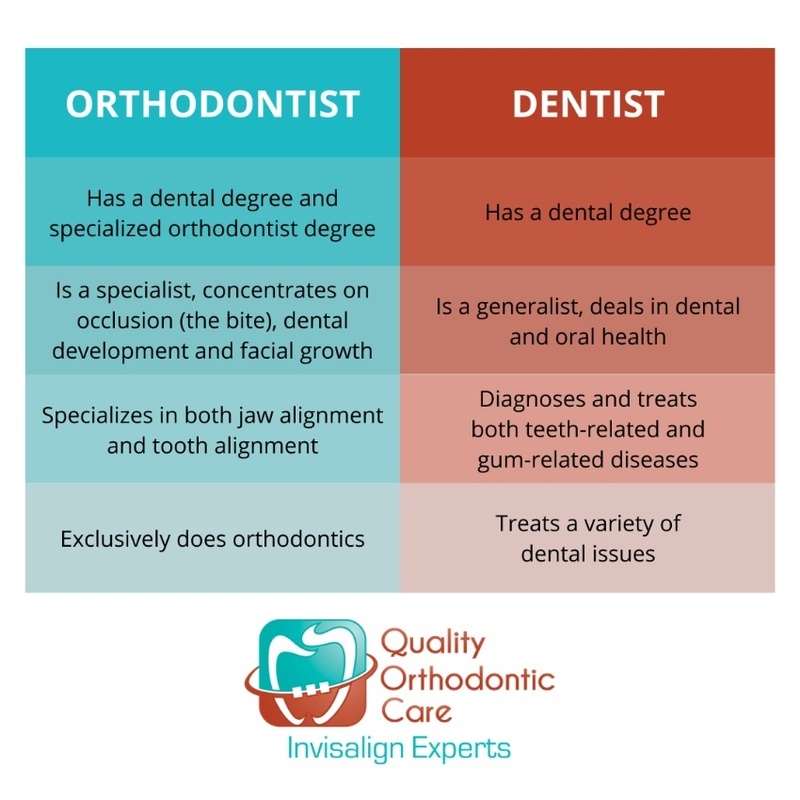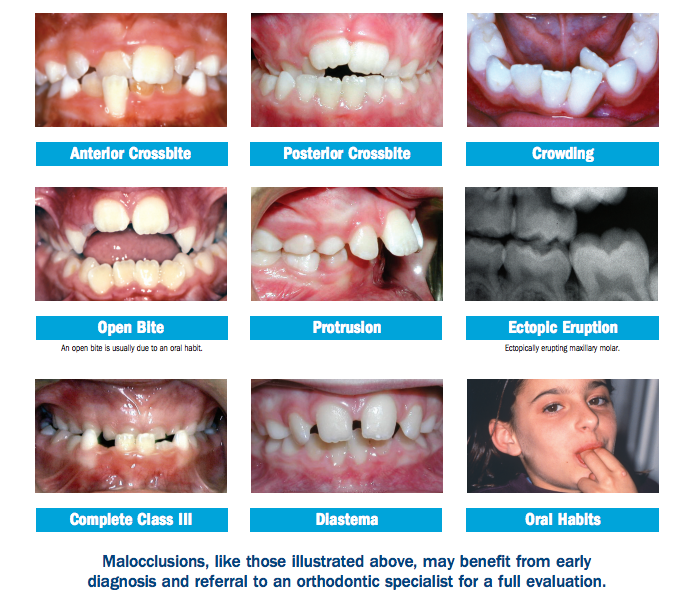Not known Facts About Causey Orthodontics
Not known Facts About Causey Orthodontics
Blog Article
The smart Trick of Causey Orthodontics That Nobody is Talking About
Table of ContentsAll About Causey OrthodonticsThe Single Strategy To Use For Causey OrthodonticsThe Causey Orthodontics IdeasThe Ultimate Guide To Causey OrthodonticsSome Ideas on Causey Orthodontics You Should KnowCausey Orthodontics Can Be Fun For AnyoneWhat Does Causey Orthodontics Mean?
What is the difference in between a dental professional and an orthodontist? All dentists, consisting of orthodontists, deal with the teeth, periodontals, jaw and nerves.
You can think of both physicians who deal with gum tissue and teeth issues. The primary distinction is that becoming an orthodontist needs a particular specialized in dealing with the imbalance of the teeth and jaw.
How Causey Orthodontics can Save You Time, Stress, and Money.
An orthodontist is a dental practitioner that has actually undertaken training to concentrate on the diagnosis, avoidance and therapy of irregularities in the jaw and teeth. Their training includes correcting these existing problems. They can also determine prospective problems in teeth placement that may develop when problems are left untreated. Orthodontists can aid individuals of every ages.
This consists of all the required education to end up being a basic dentist. According to the American Pupil Dental Organization (ASDA), it suggests you will certainly need to have either a Doctor of Medicine in Dental Care (DMD) or a Physician of Dental Surgical Treatment (DDS). Simply put, orthodontists require to complete oral college and then get an orthodontics specialized education and learning.
Some orthodontists additionally obtain their masters in craniofacial biology. These programs concentrate on 2 details locations or disciplines: Dentofacial Orthopedics: This study focuses on directing teeth and jaw development.
The 15-Second Trick For Causey Orthodontics

 These include apparatus such as braces, retainers and Invisalign. What does an orthodontist do, and what do they focus on? The general objective of an orthodontist is to improve a client's bite. Not everybody is born with straight teeth, and an orthodontist will certainly guarantee that patients obtain evenly spaced straight teeth.
These include apparatus such as braces, retainers and Invisalign. What does an orthodontist do, and what do they focus on? The general objective of an orthodontist is to improve a client's bite. Not everybody is born with straight teeth, and an orthodontist will certainly guarantee that patients obtain evenly spaced straight teeth.
Causey Orthodontics Things To Know Before You Buy
The American Organization of Orthodontists recommends your very first check up by age 7. You'll require to see your orthodontist if you have a misalignment in your teeth, additionally called malocclusion. If you notice uneven bite patterns, a somewhat misshapen jaw, or when your teeth are overcrowded, you will likely need orthodontic treatment.
At Advanced Orthodontics, we provide clients with a all natural therapy experience. In addition, we provide adjustable therapy timetables, versatile settlement choices and an enjoyable, satisfying experience. Telephone call ( 480) 357-4900 today to learn more and timetable a visit.
An orthodontist is a dentist trained to diagnose, prevent, and deal with teeth and jaw abnormalities. Orthodontists work with people of all ages, from kids to grownups (https://www.semfirms.com/profile/causey-orthodontics-0).
Causey Orthodontics for Beginners
Malocclusion, or misaligned teeth, can lead to oral issues, consisting of dental caries, periodontal disease, and hard or agonizing chewing. Not everybody is birthed with straight teeth. If you have a bad bite or large areas in between your teeth, you might wish to get in touch with a dental expert concentrating on orthodontic care.
(Picture Credit Scores: DigitalVision/Getty Images) Orthodontists utilize fixed and removable dental devices, like braces, retainers, and bands, to transform the setting of teeth in your mouth. Orthodontic treatment is for oral irregularities, including: Crooked teethBite troubles, like an overbite or an underbiteCrowded teeth or teeth that are also much apartJaw misalignmentThe objective of orthodontic therapy is to improve your bite.
Excitement About Causey Orthodontics

All orthodontists are dental professionals, yet not all dental experts are orthodontists. Orthodontic residency programs supply intensive, concentrated guideline for dental professionals. They concentrate on two areas: How to appropriately and safely relocate teeth How to properly direct advancement in the teeth, jaw, and faceOnce an orthodontist has actually finished training, they have the option to become board accredited.
Imbalance, or malocclusion, is the most typical reason individuals see an orthodontist. It is genetic and is the outcome of size differences in between the top and lower jaw or in between the jaw and teeth. emergency orthodontist near me. Malocclusion results in tooth overcrowding, a misshapen jaw, or irregular bite patterns. Malocclusion is usually treated with: Your orthodontist affixes steel, ceramic, or plastic square bonds to your teeth.
Causey Orthodontics Fundamentals Explained
If you have only small malocclusion, you might be able to make use of clear braces, called aligners, instead of conventional dental braces. Some people need a headgear to help move teeth right into line with stress from outside the mouth. After braces or aligners, you'll need to wear a retainer. A retainer is a custom tool that keeps your teeth in place.
Report this page